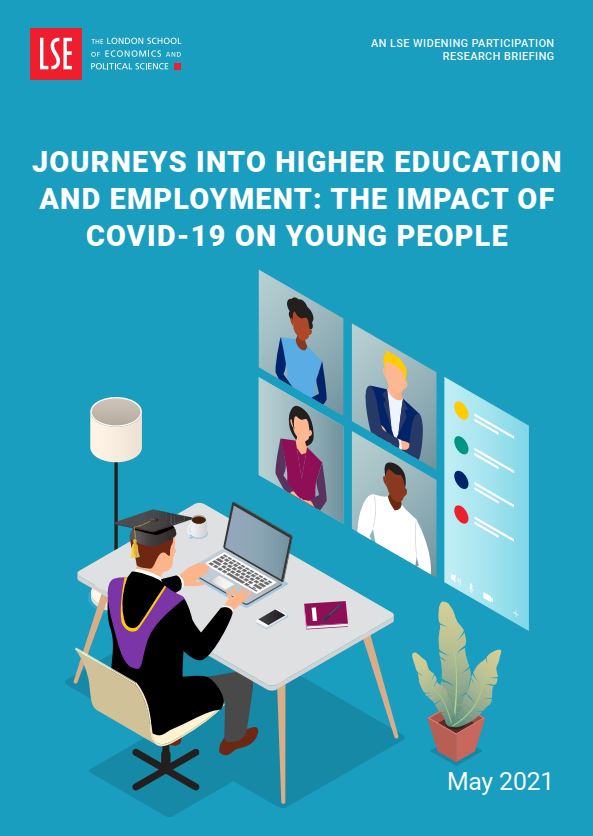
The COVID-19 pandemic and related lockdowns have disrupted virtually every young person’s life. However, the impact of these disruptions is, and will be, felt unevenly - those already facing barriers to access and success in education or employment are often those most adversely affected.
This new report outlines how the loss of work and work experience, loss of income and limited contact time with teachers are likely to translate into worse educational and career opportunities for young people traditionally underrepresented in higher education (HE).
The report also sets out what can be done to support all students in achieving their full potential.
The research combines a 2018 survey of 700 young people from London who had previously applied to an outreach programme at LSE with three focus groups of year 13 students, a literature review by the Bridge Group and recent research into the economic and social effects of COVID-19.
This report highlights four key challenges:
1. Students from low-income households will likely experience increased financial stress or even an inability to cover essential living expenses due to a loss of income from hard-hit sectors like hospitality and retail. Research indicates that these kinds of financial problems present a real barrier for students achieving their full academic potential.
2. A greater number of students are likely to choose to study close to home and commute to university due to an increase in relative costs. Research shows that living at a distance to your institution can have negative implications for accessing university support networks, feeling part of an academic community, and taking up valuable extra-curricular activities.
3. Access to career guidance and work experience opportunities has been significantly limited; not only will this worsen employment prospects, but a lack of quality careers support and first-hand work experience could negatively impact students’ confidence and ability to make informed decisions around post-16 choices.
4. Given the loss of contact hours with schools, students’ interaction with key sources of information, advice and guidance including subject teachers, advisers, and pastoral support has decreased. Our research indicates that students without a family history of higher education are likely to be most impacted by the loss of this help in confidently navigating the HE application process.
Finding Responses

Using LSE’s own initiatives as an example, the report also discusses possible interventions that can respond to these challenges. This centrally includes widening participation projects, which can provide students with information, advice and guidance on post-16 choices and higher education. Projects such as Pathways to Law and Pathways to Banking and Finance programme can even compensate for lacking careers experience. Building and using close connections between the Sutton Trust, universities and employers, the project includes work placements that provide the vital careers information especially disadvantaged students are likely to have missed out on. Together with measures such as institutional contextual admission policies that recognise the individual circumstances of a student, these interventions can thus begin to address the barriers that COVID-19 has created.
Similarly important is financial support. Bursary programmes that guarantee a certain level of financial support can reduce some of the effects of financial hardship and make university more accessible; together with targeted support for accommodation or learning equipment, they can also help young people already at university to make the most out of their time. Careers services in turn can provide the information, advice and guidance students may have missed out on due to school closures, and internship programmes or supported volunteering opportunities can provide hands-on work-experience. These interventions are a first step towards offsetting the inequalities COVID-19 has created.